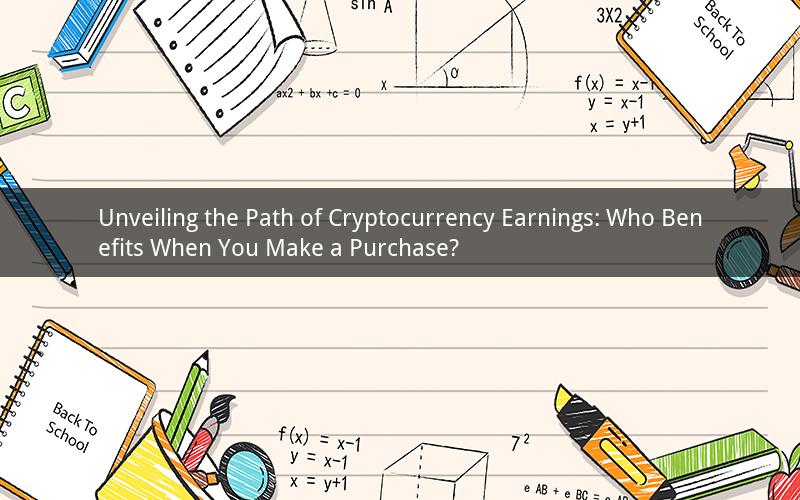
When you buy cryptocurrency, where does the money go? Who gets paid for the transaction? This article delves into the intricate details of how the flow of funds operates in the crypto ecosystem, highlighting the various parties involved in the process. By understanding the dynamics of who gets the money when you buy crypto, you can gain a deeper insight into the financial landscape of the digital currency world.
1. The Role of Exchanges
One of the primary destinations for your money when purchasing crypto is the cryptocurrency exchange. These platforms facilitate the buying and selling of digital assets, acting as intermediaries between buyers and sellers. When you make a purchase, the funds are transferred to the exchange's wallet.
Exchanges earn money through various means, such as transaction fees, listing fees, and premium services. They charge a percentage of the transaction value as a fee for their services. Moreover, exchanges may offer premium features like advanced charting tools, margin trading, and staking, for which they charge additional fees.
2. The Trading Pair
When you buy cryptocurrency, the exchange matches your order with another user's order, creating a trading pair. In this scenario, the person who sold the cryptocurrency to you becomes the recipient of your money. The seller might be an individual, a bot, or another exchange.
The trading pair is crucial because it determines the price at which the transaction occurs. The price is influenced by supply and demand dynamics in the market, as well as the volatility of the cryptocurrency in question.
3. The Blockchain
The blockchain is the underlying technology that powers cryptocurrency. When you purchase crypto, the transaction is recorded on the blockchain as a "block." This block is added to the chain, creating a permanent record of the transaction.
Miners play a vital role in the blockchain process. They validate transactions and add them to the blockchain, earning a reward in the form of cryptocurrency for their efforts. The reward is distributed to the miners based on the complexity of the cryptographic puzzle they solve, known as Proof of Work (PoW).
4. The Mining Pool
In some cases, miners join a mining pool to increase their chances of earning rewards. A mining pool is a group of miners who work together to solve the cryptographic puzzle, splitting the reward among the participants.
When you buy cryptocurrency, the mining pool that successfully mines the block is rewarded with the newly created coins. The mining pool then distributes the rewards to its members, who have contributed their computational power to the process.
5. The Seller's Earnings
The seller of the cryptocurrency you purchased is the ultimate recipient of the money. The seller's earnings depend on various factors, such as the price at which they sold the cryptocurrency, the transaction fees they paid, and any additional costs associated with the sale.
The seller might be an individual who owns the cryptocurrency, an exchange that holds the cryptocurrency in its wallet, or another entity that has sold the cryptocurrency to you. In any case, the seller's earnings are a crucial part of the crypto ecosystem, as they incentivize individuals to hold and sell digital assets.
Frequently Asked Questions:
1. How does the exchange make money when I buy cryptocurrency?
Answer: Exchanges make money through transaction fees, listing fees, and premium services like advanced charting tools, margin trading, and staking.
2. What is the role of the blockchain in the crypto ecosystem?
Answer: The blockchain is the underlying technology that powers cryptocurrency. It records transactions, validates them, and adds them to the chain as blocks.
3. How do miners earn rewards in the cryptocurrency ecosystem?
Answer: Miners earn rewards by validating transactions and adding them to the blockchain. They solve a cryptographic puzzle known as Proof of Work (PoW) to earn new coins.
4. What is a mining pool, and how does it benefit miners?
Answer: A mining pool is a group of miners who work together to solve the cryptographic puzzle, increasing their chances of earning rewards. The rewards are then split among the participants.
5. Who gets the money when I sell cryptocurrency?
Answer: The recipient of the money when you sell cryptocurrency is the buyer of the digital asset. The buyer's funds are transferred to the seller, who could be an individual, an exchange, or another entity.